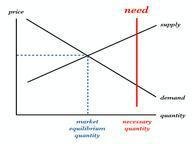Quiz Answer Key and Fun Facts
1. "In the long run we are all dead."
2. "I have never understood why it is 'greed' to want to keep the money you have earned but not greed to want to take somebody else's money."
3. "It is not from the benevolence of the butcher, the brewer, or the baker that we expect our dinner, but from their regard to their own interest."
4. "The curious task of economics is to demonstrate to men how little they really know about what they imagine they can design."
5. "When goods do not cross borders, soldiers will."
6. "Nothing is so permanent as a temporary government program."
7. "Socialism is an alternative to capitalism as potassium cyanide is an alternative to water."
8. "Taxation is theft."
9. "The history of all previous societies has been the history of class struggles."
10. "Wealthy Americans who benefit hugely from a system rigged in their favor react with hysteria to anyone who points out just how rigged the system is."
Source: Author
skylarb
This quiz was reviewed by FunTrivia editor
trident before going online.
Any errors found in FunTrivia content are routinely corrected through our feedback system.

